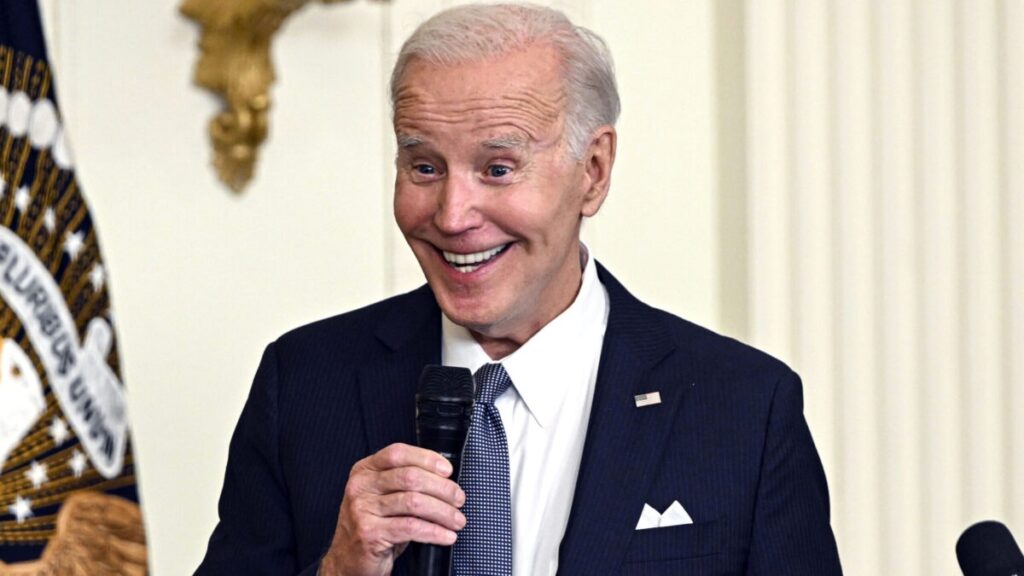In a groundbreaking ruling last week, the U.S. Supreme Court declared that the Biden administration’s attempt to unilaterally pardon federally subsidized student loans using the HEROES Act was illegal, sparking a contentious debate that has shaken the American political landscape. The reverberations from this grand judicial swipe against what former New Hampshire Republican Governor Judd Gregg brands as “the biggest vote-buying scheme ever received or undertaken by a presidency” continues to pulse through the national political discourse.
"It was the biggest vote buying scheme ever undertaken by a presidency. This was an attempt to spend almost $500B and add it to the debt," says Fmr. Sen. Judd Gregg on President Biden's student debt relief plan. "They clearly violated Article 1 of the Constitution." pic.twitter.com/UI24ggm55C
— Squawk Box (@SquawkCNBC) July 3, 2023
Judd Gregg lambasted President Biden further during an interview on CNBC’s “Squawk Box”, articulating his concerns for the long-term economic implications of Biden’s bailout plan and the precedent it sets for the balance of power within government sectors. As detailed by Gregg: “Forty million people get 20,000 bucks. I’ll vote for you to give me 20,000 bucks… That’s why they’re trying to reform it so they can keep this idea that they’re going to give this huge tax break, this income to all these folks going into the next election.”
Gregg asserts that the proposal not only assumes a gross overreach of executive power but tactically pushes the debt burden onto future generations. Further highlighting the problematic notion that the executive branch can bypass congressional authority, Gregg states: “If Congress wants to give away $20,000 per person to 40 million people and put the rest of the country at risk and increase the debt, and they have the right to do that… But you can’t do it from the executive branch because the executive branch doesn’t have that right under our constitution.”
The Supreme Court’s verdict, spearheaded by Chief Justice John Roberts, punctuates the palpable concern over partisan politics undermining constitutional norms. “The Secretary asserts that the HEROES Act grants him the authority to cancel $430 billion of student loan principal. It does not…” wrote Justice Roberts for the 6-3 majority, joined by Justices Samuel Alito, Neil Gorsuch, Amy Coney Barrett, Brett Kavanaugh, and Clarence Thomas.
This landmark decision unfolds in two parts. Initially, all justices ruled unanimously in the case Department of Education v. Brown that petitioners who were denied debt relief under the program did not have standing to sue the Department of Education. The subsequent case, Biden v. Nebraska, upheld the right of several GOP states involved in the lawsuit to sue the Biden administration, essentially slamming open the doors for their grievance to be aired before the court. Roberts unequivocally concurred, opining, “Six States sued, arguing that the HEROES Act does not authorize the loan cancellation plan. We agree.”
As American jurisprudence faces an unprecedented test of constitutional versus executive authority, this ruling marks an emboldened step towards checking the expansive governmental power. It is an unequivocal affirmation that, regardless of political maneuvering, the law reigns supreme and unilateral decisions in major economic policy matters are a breach of constitutional norms.
The Biden student loan bailout program, pinpointed as an attempt to dole out benefits with an eye towards election gains, has now decisively been thwarted. It serves as a stark reminder that even within the wheels of the complex machinery of U.S. politics, the judicial branch plays a critical role in maintaining balance. And as Gregg underscores, this bold act of judicial housekeeping sends a potent message: respect for constitutional boundaries will continue to triumph over political convenience.



